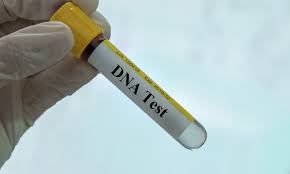Nigerian mental health professionals have advised fathers not to abandon children they have raised, even if DNA test results reveal that they are not the biological fathers.
The advice follows the release of the 2025 Annual DNA Testing Report by Smart DNA Nigeria, which shows that 25% of Nigerian men who underwent paternity testing between July 2024 and June 2025 were not the biological fathers of the children tested. This is a slight decrease from 27% recorded in the previous year. The report also revealed that firstborn children were the most affected, with 64% of disputed firstborn sons and a significant number of firstborn daughters confirmed not to be biologically related to their assumed fathers.
Speaking to The Punch, mental health experts warned that such revelations should not lead to the emotional or physical rejection of the child involved. They emphasized that children should not suffer the consequences of adult disputes and that emotional withdrawal can result in serious mental health issues for the child.
Dr. Yesiru Kareem, Consultant Psychiatrist at the Federal Neuropsychiatric Hospital, Abeokuta, noted that the sudden rejection of a father figure can lead to depression, anxiety, identity crises, and even suicidal thoughts, particularly in young children.
He explained that many children develop strong emotional attachments to their father figures from an early age, and abruptly severing that bond could have long-term psychological effects.
“The revelation that a man is not the biological father should never translate to withdrawing affection or responsibility from the child,” Kareem said. “These children did not choose the circumstances of their birth.”
He added that fatherhood should include emotional, psychological, and social responsibilities, not just biological ties. He recommended that cases involving non-paternity should be handled with professional support, discretion, and empathy.
Dr. Juliet Ottoh, a clinical psychologist, also emphasized that the way paternity discoveries are managed has a significant impact on the child. She stated that children in their formative years are highly sensitive and may interpret rejection as a personal failure, which can harm their self-esteem, academic performance, and trust in relationships.
“Children might feel betrayed or blame themselves,” Ottoh explained. “This emotional damage can follow them into adulthood.”
She also warned that public exposure of such issues could lead to stigma and ridicule, urging families to protect children’s privacy and avoid turning such matters into public disputes.
According to Ottoh, male children who experience rejection may grow up with trust issues towards women, while female children may develop fears of abandonment or deception in future relationships.
Both experts concluded by encouraging fathers to continue fulfilling their parental roles, regardless of DNA results.
“Fatherhood is not only about blood—it is about presence, love, and support,” Ottoh said.




